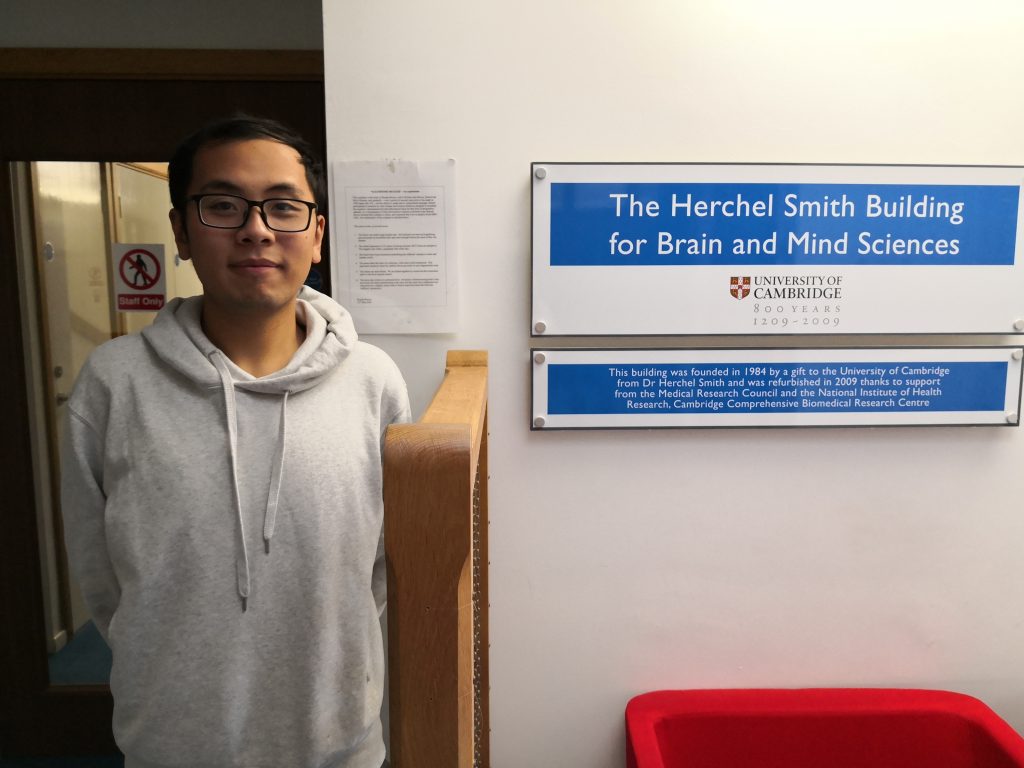Brain androgyny: College members win Diversity in Research Paper Award
Congratulations to Yi Zhang (pictured), a Life Member of Clare Hall and Postdoctoral Researcher at the University of Cambridge, whose co-authored paper has won a Diversity in Research Paper Award (DIRPA) from the Human Brain Project. The paper is titled The Human Brain Is Best Described as Being on a Female/Male Continuum: Evidence from a Neuroimaging Connectivity Study.

Yi contributed to this work while a PhD student in the Department of Psychiatry at the University of Cambridge. One of his Supervisors and a co-author, Dr Qiang Luo, was also based in Cambridge as a Visiting Researcher in Medicine and a Visiting Fellow of Clare Hall. Professor Barbara Sahakian (a Fellow of Clare Hall), Professor Jianfeng Feng (a Clare Hall Associate), Dr Christelle Langley (an Affiliated Postdoc of Clare Hall), and Professor Ed Bullmore (a Fellow of Wolfson College) are co-authors on the award-winning paper.
Now with a PhD from Fudan University, Yi is returning to the University of Cambridge as a Postdoctoral Researcher.
On receiving the award, he comments:
‘It is really a great honour for me to get the award, and I feel very excited about it. I hope our findings and model could be applied to more real-world cases, potentially guiding people to have better mental health. In our previous study, we found that the brain androgyny was related to better mental health, especially fewer internalising problems, including anxiety and withdrawing behaviours. Currently, we are trying to generalise our model to clinic datasets and studied the association between brain androgyny and major depressive disorders and their treatment. Indeed, we found some interesting novel results that the brain androgyny might be related to a better response to antidepressant treatment.’
Professor Sahakian adds:
‘I am delighted that our article with Yi Zhang as first author, which was published in Cerebral Cortex, has won the Human Brain Project Diversity in Research Paper Award. Our article presents a novel theory of Brain Androgyny, and provides evidence that the optimal brain is not at the extreme male or female ends of a brain sex continuum, but in the middle. Our article also highlights the importance of not promoting stereotyped male and female behaviour in children and adolescents, but instead provide them with opportunities and experiences in a wide variety of domains, so that both males and females will benefit from having optimal brain development, cognition, wellbeing and mental health. I hope that this award from the Human Brain Project will inspire our many innovative and remarkable young scientists to put themselves and their important research studies forward for awards and prizes.’